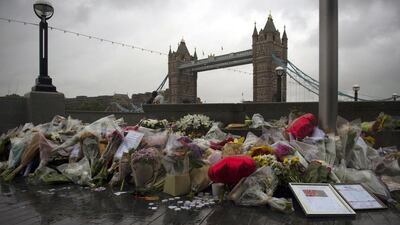Unregulated schools are a breeding ground for terrorism, a senior British official has warned as the government faced continuing questions over its ability to crack down on extremist mosque-run madrassas.
Isolated communities within the UK posed the greatest threat of incubating terrorism, said the country’s counter-terrorism police coordinator Neil Basu. After four major attacks in the UK in 2017, he said that that authorities were shifting their focus to the “threat in our midst” after stemming the flow of disaffected young Britons to fight in Syria.
“Segregated and isolated communities, unregulated and home schooling are a breeding ground for extremism and future terrorism,” the officer said in a briefing to senior colleagues.
Concerns were raised following the so-called “Trojan Horse” affair of 2014 when schools in the city of Birmingham were investigated amid claims of a Muslim Brotherhood-linked plot to put hardliners in control the governing bodies and force out head teachers.
A subsequent government-commissioned report found evidence of “coordinated, deliberate and sustained action … to introduce an intolerant and aggressive Islamic ethos” in schools. It found that some of those at the centre of the dispute were involved in out-of-school educational centres.
Separately education inspectors set up a unit in January 2016 to identify schools operating illegally – including unregistered Islamic madrassas - which have resulted in 38 being handed warning notices and ordered to change their practices or face closure. Of those 10 had a “religious character,” according to inspectors.
They have identified 291 schools operating illegally, according to the figures from education inspectorate Ofsted which includes institutions promoting Islamic, Christian and Jewish values, but with few checks on the activities of teachers and governing authorities.
Schools only have to register with the authorities if they offer full-time education for more than five students. Schools operating illegally have been found to run “part-time” classes for more than about 18 hours a week, and effectively become the full-time education provider for its students.
The government said it had received evidence of staff and volunteers not being properly checked or cleared to work with children, and the use of unsuitable teaching materials. At one Islamic faith school, inspectors found a leaflet which said that “Music, dancing and singing are acts of devil and prohibited”.
Senior officials had been calling on the Government in 2015 to do more to protect the estimated 6,000 children in unregistered schools. The government is yet to respond to a consultation on plans to register and inspect out-of-school educational centres.
Khalid Mahmood, the opposition Labour MP for a Birmingham constituency, told this newspaper that madrassas only had to adhere to rules on avoiding traffic congestion. He called on the government to prevent young people becoming radicalised and said that background checks on religious teachers should be mandatory.
Mr Mahmood co-authored a study based on a survey of British Muslims which suggested that more than three-quarters backed government regulation to prevent unsuitable teachers from being able to tutor in madrassas. Nearly two-thirds backed the idea that they should be trained by a government body.
It concluded: “Clearly Britain’s Muslims are comfortable with the authorities providing some minimum level of oversight of mosque-based education.”
The intervention by Neil Basu follows a series of attacks carried out by Britons apparently radicalised over the internet. A BBC documentary on Monday revealed the role that Syrian-based plotters had in attempting to groom young Britons via social media to attack iconic locations in London.
Attacks on the UK in 2017 include the bombing of an Ariana Grande pop concert attended by young people in Manchester that left 22 dead, and attacks using vehicles and knives on two London bridges which left a total of 13 people dead.
Security services have 3,000 current suspected extremists they are monitoring, a number that will only rise, said Mr Basu. “The threat was the traveller or the returning fighter, who was battle-hardened and even angrier, but now it's the threat in our midst.
“We stopped a lot of those would-be jihadists travelling too and some of those remain committed to their cause. If they can't travel, then why not attack us here.”
The current head of the inspection regime, Amanda Spielman, said that schoolchildren needed to be equipped with the ability to push back against extremist views that put “hatred in their hearts and poison in their minds”.
She said an area of improvement was the “promotion of fundamental British values” in schools following the attacks in London and Manchester.
“Teaching the young about British values is critical to developing that resilience,” she said in a speech in June. “And by that, I do not mean superficial displays or tick box exercises. We’ve all seen it: the Union Jack in the corridor, the pictures of the Queen.”
Hannah Stuart, of the Policy Exchange thinktank, who has researched extensively the backgrounds of home-grown jihadists said that she had long-standing concerns about the ability of Ofsted officials to identify signs of extremism in schools.
She cited Ofsted reports written just before an extremism scandal which showed that “officials had gone in and believed what they have been told, rather than cast a critical eye over how the religious issues had been presented.”


